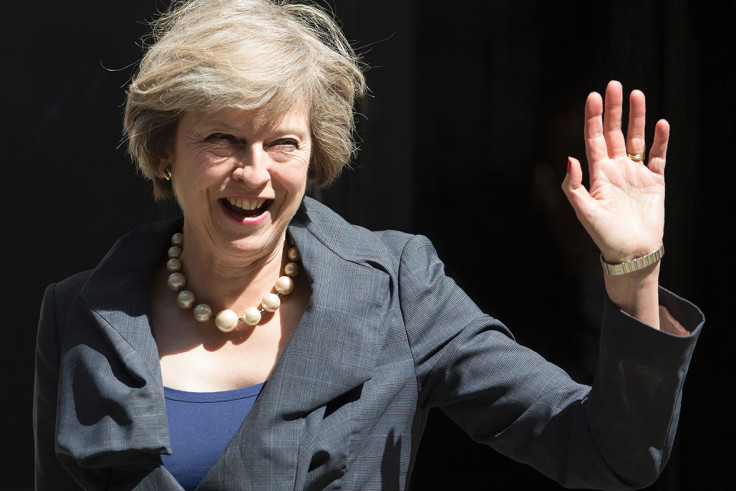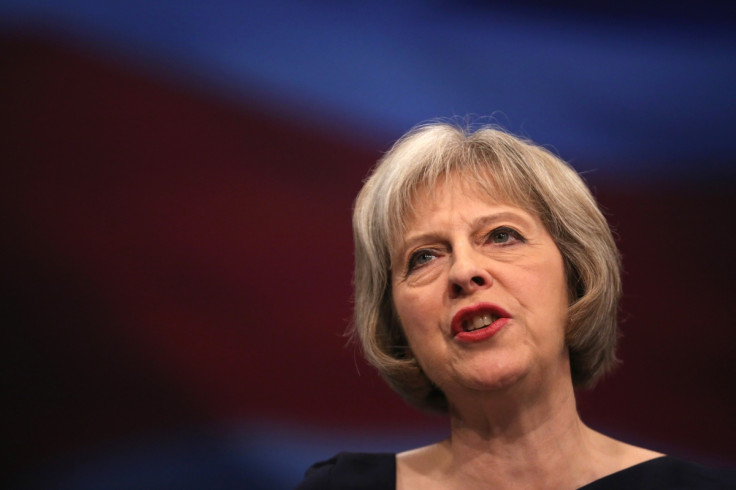Theresa May: What are the new prime minister's views on Brexit, human rights, gay marriage and more?
IBTimes UK investigates the political record of the incoming premier.

Theresa May's long tenure as home secretary, a department known in the political business as a 'ministerial graveyard', is nothing to be scoffed at. But even with more than six years near the top of British politics, the clergyman's daughter is something of an enigma. Little is known about May's foreign policy thoughts, her economic theory or the incoming prime minister's opinions on the arts.
As for the 'are you tough enough to take on Vladimir Putin?' question, May has not been tested on the world stage, but back in Blighty her run-ins with the Police Federation have earned the 59-year-old a no-nonsense reputation.
Naturally, May has recently been compared to Margaret Thatcher – the UK's first female prime minister – and German Chancellor Angela Merkel, a fellow right-of-centre Christian politician. Here, IBTimes UK attempts to shed light on what Britain's new prime minister believes.
'Brexit means Brexit'
Somewhat of a reluctant Remain campaigner, May has gone out of her way to reassure her Eurosceptic colleagues in the Conservative Party and the slim majority of the UK electorate who backed a break away from Brussels at the EU referendum. "Brexit means Brexit," the incoming premier declared yesterday.
However, at risk of getting philosophical, what does May mean by 'Brexit'? The new prime minister has promised to trigger Article 50 of the Lisbon Treaty, the mechanism that signals to Brussels that a nation wants out of the EU and opens exit negotiations, but stressed that she will not rush the process.
May's move is designed to help line up a team of strong deal-breakers and get the best settlement for Britain. Even a 'Brexit minister' in May's top team has been mooted in the UK press. But we are currently in the dark as to what arrangement May wants.
Will she favour a Norway-style set-up, which would see the UK join the European Economic Area (EEA)? This option would give Britain access to the single-market, but mean the UK would have to commit to the EU's founding principles, including the free movement of people.
Considering immigration was a hot topic in the referendum campaign, the EEA option risks a backlash from Leave voters. Not least because May oversaw the government's failure to meet its "tens of thousands" immigration pledge. The latest figures from the Office for National Statistics (ONS) put net migration to the UK at 333,000.
Another consideration for May is the status of the millions of EU nationals in the UK. So far the top Tory has failed to give them any reassurances on their future, leading to accusations that she is using them as a "bargaining chip" for Brussels negotiations.

Human rights
In one of her few public interventions in the run-up to the referendum, May made a blistering attack against the European Court of Human Rights (ECHR). The Home Secretary claimed the court can "bind the hands of parliament, adds nothing to our prosperity [and] makes us less secure".
May also warned that the Strasbourg Court could prevent the deportation of "dangerous" foreign nationals and concluded that the UK should quit the ECHR whatever the result of the referendum in a bid to reform human rights laws.
But as the Conservative leadership contest started, May dropped her opposition to the ECHR, a move which made up her general repositioning to the centre-right.
In the Home Secretary's defence, she also won plaudits from liberals and the left when she reformed controversial stop and search laws in 2014. The move saw police forces across England and Wales face tougher restrictions when using the powers. "Nobody wins when stop and search is misused," May declared. "It can be an enormous waste of police time and damage the relationship between the public and police."
Gay marriage
Iain Duncan Smith's leadership of the Tories saw the party take a socially conservative turn. In 2002, as a member of Duncan Smith's top shadow team, May voted against gay adoption and two years earlier against repealing Section 28, which blocked local authorities from "promoting" homosexuality.
Her evolution on the issue began in 2004, when, under Michael Howard, she voted to support Civil Partnerships and in 2010, as David Cameron's new equalities minister, May dropped her opposition to gay adoption and became a champion of the 2013 Marriage Act, which legalised same-sex marriage across England and Wales.
"I believe that if two people care for each other, if they love each other, if they want to commit to each other and spend the rest of their lives together then they should be able to get married," May reportedly said.
Executive pay
In the middle of England, around an hour or so before Andrea Leadsom's decision to quit the Tory leadership contest, May gave Britain's businesses a flavour of what is to come. Speaking to her supporters in Birmingham at her national leadership campaign launch, May promised to reform high executive pay levels and introduce new rules around evasion and avoidance.
"It doesn't matter to me whether you're Amazon, Google or Starbucks, you have a responsibility to pay your taxes," she declared. "As prime minister, I will crack down on individual and corporate tax avoidance and tax evasion."
The speech, delivered in front of "a country that works for everyone, not just the privileged few" banner, was similar to commitments made by former Labour leader Ed Miliband ahead of his 2015 general election defeat. The address was also a strong signal that May could position the Conservatives smack in the centre-ground of British politics, while Jeremy Corbyn takes Labour leftwards.
© Copyright IBTimes 2025. All rights reserved.






















